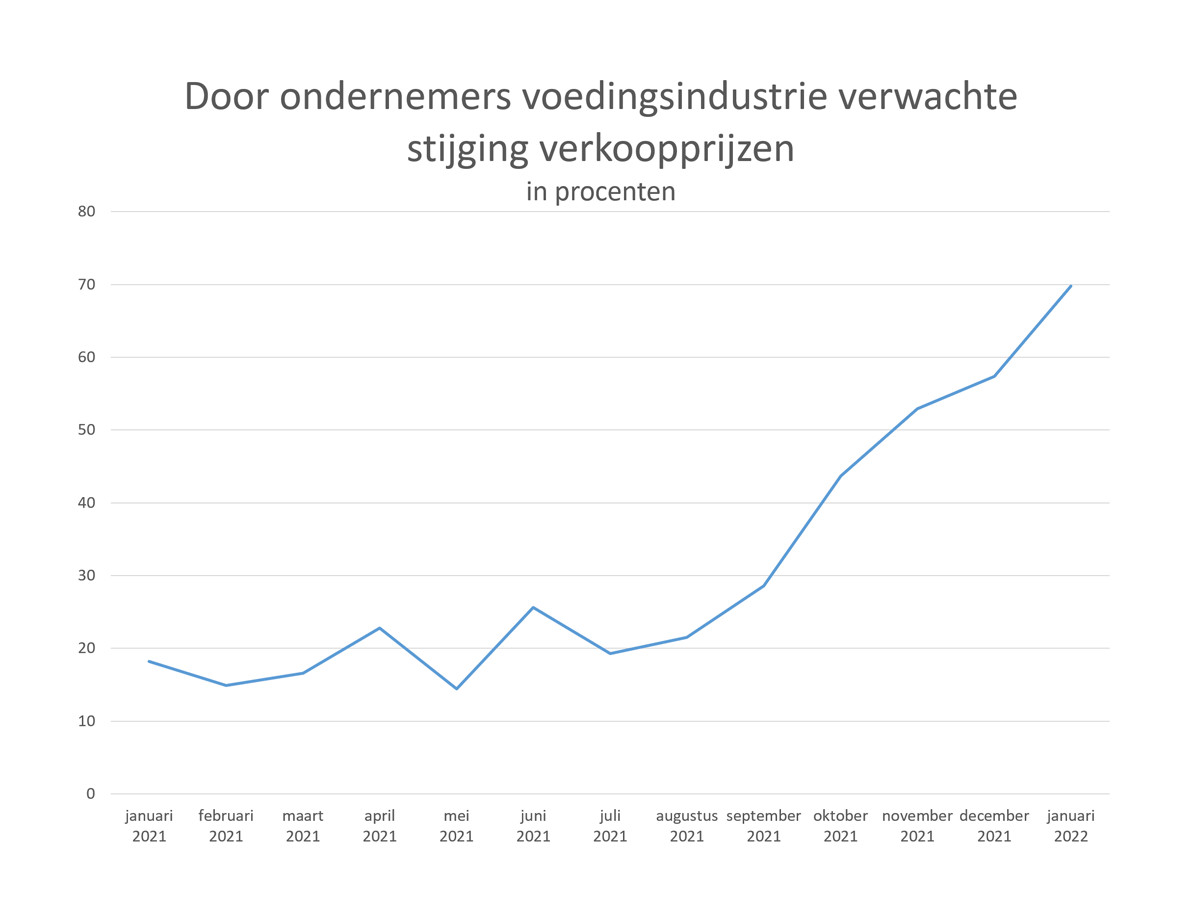
More and more entrepreneurs in the food industry say they encounter obstacles in their production. On the other hand, nearly 70 percent of entrepreneurs expect higher selling prices in the first quarter of this year. Compared to previous quarters, entrepreneurs are less positive about the development of turnover, while the order position in terms of months of work is the highest in recent years. This is evident from an analysis of recent CBS economic data by our editors.
Nearly 67 percent of manufacturers in the food industry stated at the beginning of this year that they foresaw obstacles to their own production in the first quarter. This is the highest percentage since June 2020, when 67.3 percent expected impediments. At the beginning of last year, 'only' 50.3 percent of the entrepreneurs foresaw obstacles. A shortage of labour hinders entrepreneurs the most. At the beginning of this year 29.2 percent of the entrepreneurs indicated that a shortage of labour is a bottleneck for the production. A shortage of finances, on the other hand, is hardly an obstacle. Only 0.8 percent of entrepreneurs cited this as a bottleneck at the beginning of the year.
Because of continuing high prices of energy, transport and raw materials, entrepreneurs in the food industry expect their selling prices to rise further in the first quarter of this year. No less than 69.8 percent foresee a price increase, 29.1 percent stable prices and only 1 percent declining prices. Since July 2021, the percentage of entrepreneurs anticipating higher sales prices has risen from 19.3 percent to 69.8 percent now.
The number of food manufacturers expecting turnover to increase in the first quarter of this year (20.7 percent) is considerably lower than in the fourth quarter of last year, when 32.4 percent assumed turnover growth. In the first quarter of last year, expectations were even lower: only 11.8 percent expected turnover to increase.
The order position of the food industry was 2.9 months of work at the beginning of this year. This is the highest position since February 2015, when there was an average of 3.2 months of work per company. The increase in the number of months of work at the beginning of this year is remarkable as it did not exceed 2.5 months in the past two years.
Source: Vakblad Voedingsindustrie 2022